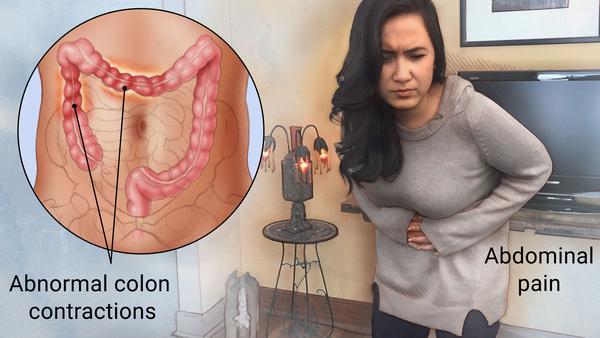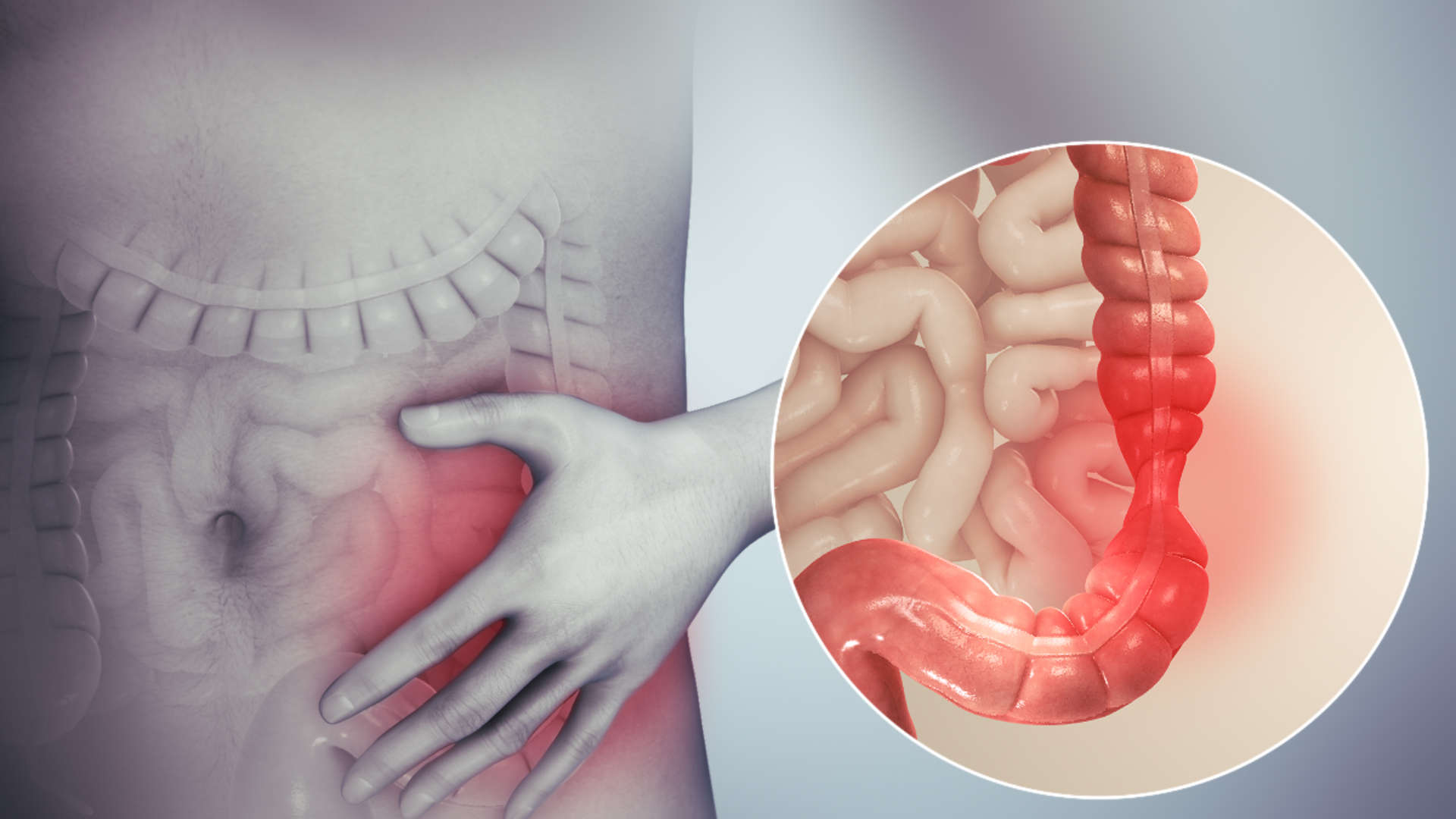Don’t you just hate IBS or irritable bowel syndrome? Jogging in the morning is impossible, and going out anywhere becomes a cause for worry in case you must go; each time there’s a social do, you must run at least once before even walking out the door just to make sure and what does your doctor tell you?? It’s all in your head!! This article explores natural remedies for IBS and how to manage the condition.

IBS, or irritable bowel syndrome, is a very real and discomforting condition for millions worldwide. Almost all suffer from one or more symptoms of IBS that range from bloating, cramps, diarrhea, constipation, and pain. Some even suffer from all of them. Regardless of what doctors give you, Metamucil, sedatives, antispasmodic, antidepressants, how many of these work to manage the real problem?
What Is Irritable Bowel Syndrome?
Iritable bowel syndrome (IBS) is a common disorder that affects the large intestine (colon). The exact cause of IBS is not known, but it’s believed to involve a combination of factors, including abnormal muscle contractions in the intestines, increased sensitivity to certain foods, stress, and abnormalities in the nervous system that controls digestive processes.
IBS is a chronic condition, typically lasts a long time, but symptoms may come and go. IBS can impact a person’s quality of life and may require ongoing management through lifestyle changes, dietary adjustments, medications, and stress management techniques. It’s important for individuals experiencing symptoms of IBS to seek medical evaluation and guidance for appropriate diagnosis and treatment.
Symptoms of Irritable Bowel Syndrome
The symptoms of irritable bowel syndrome (IBS) can vary widely from person to person, but they commonly include:
- Abdominal pain or discomfort: Described as cramping or aching with an urge to poop
- Changes in bowel habits: Can include diarrhea, constipation, or alternating between the two.
- Bloating and gas: Bloating and Gas are common in IBS.
- Changes in stool consistency: Stools may be harder or looser than usual, and they may appear lumpy or watery.
- Feeling of incomplete emptying: Even after a bowel movement, individuals with IBS may still feel like they haven’t completely emptied their bowels.
- Mucus in the stool: Some individuals with IBS may notice mucus in their stool.
Causes of Irritable Bowel Syndrome
The exact causes of irritable bowel syndrome (IBS) are not fully understood, but it is believed to involve a combination of factors, including:
Abnormal gastrointestinal motility: IBS may involve abnormalities in the way the muscles in the digestive system contract and move food through the intestines. This can lead to symptoms such as diarrhea, constipation, or a combination of both.
Sensitivity to certain foods: Increased sensitivity to certain foods or food additives can trigger symptoms of IBS
Gut-brain axis dysfunction: There is a complex interaction between the brain and the gut, often referred to as the gut-brain axis. Dysfunction in this communication system may play a role in the development of IBS, as stress and psychological factors can influence gut function and increase symptoms. Some people get diagnosed with IBS after a severe infection affecting their GI tract, suggesting germs may play a role.
Intestinal inflammation: Low-grade inflammation in the intestines may contribute to the development of IBS, although it is not a common feature of the condition as in inflammatory bowel diseases like Crohn’s disease or ulcerative colitis.
Altered gut microbiota: The trillions of microorganisms that inhabit the gastrointestinal tract, known as the gut microbiota, play a crucial role in digestion, immune function, and overall health. Imbalances in the composition of the gut microbiota have been implicated in IBS and may contribute to symptoms.
Genetic factors: Some research suggests genetic factors may predispose certain individuals to develop the condition.
Childhood stress: IBS is more common in people who experienced severe stressors in childhood, including physical, and emotional abuse.
Tips on managing IBS
- You Need to Have a Healthy Gut: IBS is all about managing your digestion and keeping your gut healthy. There’s no point treating symptoms that will only resume once you’re off medication. The trick is to ensure normal digestive function and health. Moreover, practicing relaxation exercises to calm yourself makes a big difference because IBS can cause anxiety too
- In your gut, you have two kinds of bacteria or, as I would put it, four types. One is bad bacteria, the real bad guys who constantly upset you and are the prime cause of IBS; then there are the extremely harmful bacteria that cause conditions like food poisoning and intense diarrhea because of eating bad food. Then there are two kinds of good guys. These are known also as prebiotics and probiotics.
- Prebiotics and probiotics: Prebiotics are the long-term bacteria in your tummy that colonize your gut and remain there permanently. These are compounds that help probiotics, or good bacteria, survive. A constant number of prebiotics is necessary for the survival of probiotics. It’s when the usual bad bacteria start invading your small intestine that the condition of IBS occurs. One must be aware that IBS is a functional bowel disorder, which means any physical conditions don’t cause it. Food allergies and parasites are usually the cause of IBS, but it could also be a lack of digestive enzymes or mineral deficiencies that cause IBS too. Regardless of such factors, the right eating habits, a poor diet, and proper meal timings can do much to increase the problem.
- Avoid gluten: A gluten-free diet such as avoiding wheat products and items like barley, rye, and oats. Although this may not hold for all sufferers of IBS, it’s worth a try. You need to follow a system of trial and error to see what suits you and what doesn’t.
- Get checked for parasites: Protozoa, such as Blastocystis, Cryptosporidium, and Giardia spp, are common enteric parasites believed to be linked to IBS. Giardia is another tiny parasite (germ) that causes the diarrheal disease giardiasis with symptoms like IBS.
- Adapt your diet to your biochemistry: A typical diet consists of 40% protein, 30 % fats and 30% carbs. But ratios need to be considered according to one’s bodily needs. You could be requiring less carbs and more protein or more fats. A nutritionist is the best person to formulate a diet plan for you. You also need to learn to differentiate between grain carbs, which convert to sugar, and healthy carbs from veggies. One diet developed in Australia and called the Low Fodmap diet has been proving quite successful in IBS.
- Avoid processed food: Avoid processed food and eat more wholesome fresh fruits, and vegetables. Avoid milk if you are lactose intolerant.
- Avoid spicy food: Spicy food and foods containing capsaicin should be avoided as these could trigger IBS symptoms.
- Avoid smoking: Smoking and alcohol can lead to several digestive problems irritating your IBS.
Natural Remedies For IBS
Prebiotic foods
Prebiotics are your first line of defense against any stomach inflammation and amng the best remedies for IBS. Some foods rich in prebiotics are bananas, garlic, onions, leeks, dandelion greens, apples, flaxseed, seaweed, konjac root, asparagus, and Jerusalem artichoke.
Probiotics
Like prebiotics, probiotics such as lactobacillus will help your digestion. These are good bacteria that feed on prebiotics, which increases their defense mechanism against bad bacteria. Foods rich in probiotics are Greek Yoghurt, Kefir, sauerkraut, miso soup, kombucha tea, kimchi, apple cider vinegar, goat’s milk cheese, cottage cheese, and supplements.
Fennel seeds
Fennel seeds are among natural remedies for IBS as it reduces intestinal spasms and bloating which are common symptoms of IBS. Fennel also prevents the formation of mucus. Crush fennel seeds and mix a tablespoon of it in boiled water. Allow it to remain for 10 minutes, and then consume it thrice daily.
Organic flaxseed
Consume a tablespoon of ground or roasted flaxseed every day. Flax is also a good source of omega-3 fatty acids, especially ALA or alpha-linolenic acid.
Ginger
Ginger is a good natural remedy for IBS as it helps in removing gas and decreasing bloating. It is also anti-inflammatory for the intestines and is a muscle relaxant. Put one teaspoon of freshly grated ginger in hot water. Allow it to remain for 10 minutes, strain it and mix a teaspoon of honey. Drink this thrice a day.
Chamomile
Chamomile is known for its antispasmodic properties and tannin, which relieves IBS and diarrhea. Take three teaspoons of chamomile flowers and brew them in boiled water for 15 minutes. Strain and add a dash of lemon juice. Consume thrice a day.
Increase fiber
Increasing fiber can be extremely helpful in controlling IBS, especially in conditions of diarrhea and constipation. Psyllium is a very good fiber supplement in the treatment of IBS. It reduces bowel movements and increases the amount of stool. However, use organic psyllium rather than a nonorganic one. Moreover, a diet of vegetables and fruits will also provide you with rich fiber. Grains such as oats are also an excellent source of fiber.
These natural remedies for IBS are helpful in managing the condition. Still, you need to maintain a healthy lifestyle by eating at the right time, avoiding the wrong food, and exercising daily. As much as it may sound unorthodox to you, meditation techniques such as mindfulness, yoga, and emotional freedom techniques or EFT do much to calm your mind and address your emotional distress caused by irritable bowel syndrome. These are natural suggested remedies for IBS and no substitute for medication. Please consult your doctor before starting any new treatment.

